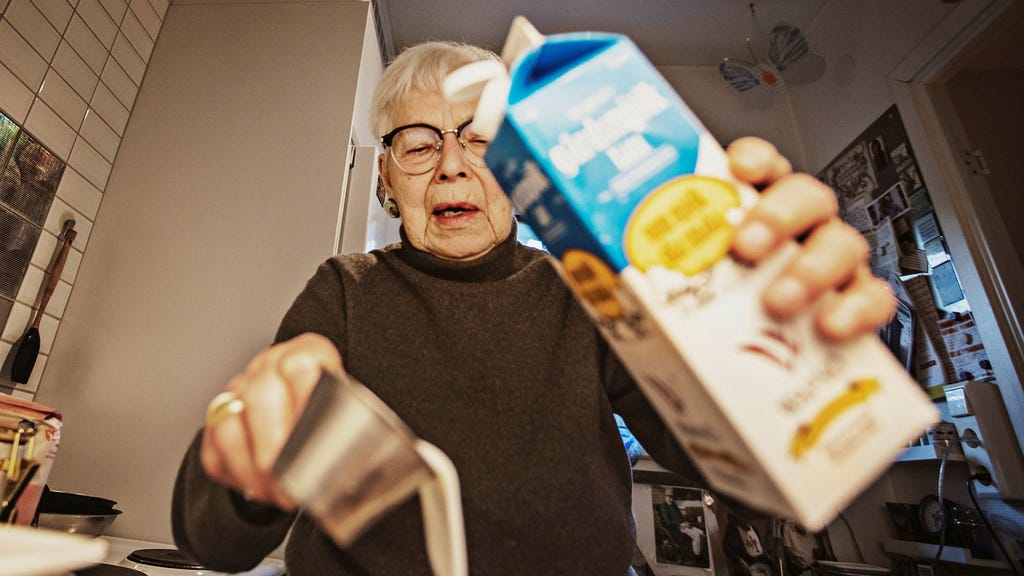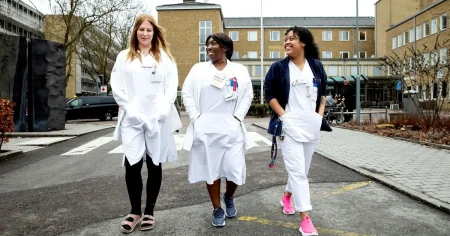Astrid Uhnér, a 94-year-old former religion teacher residing in Gnosjö, Sweden, finds her daily routine a strenuous undertaking. The simple act of making her bed becomes a physical feat, a testament to her advancing age and diminutive stature. For three years, Astrid received a vital lifeline: meal deliveries four times a week from a local restaurant, facilitated through the municipality’s home care services. This service, which she paid for herself, provided not only sustenance but also a crucial social connection. The substantial portions allowed her leftovers for dinner, easing the burden of meal preparation. More importantly, the daily interaction with the delivery person brought a spark of human contact into her solitary life.
However, this lifeline was abruptly severed. The municipality, Gnosjö Kommun, decided to terminate Astrid’s meal service, deeming her ”too healthy” to require assistance. Despite her protests and appeals, the decision was upheld, even after reaching the highest administrative court. The municipality argued that Astrid’s ability to shop for groceries implied an ability to visit a nearby restaurant, negating her need for home-delivered meals. This decision left Astrid bewildered and struggling. Her advanced age, rather than diminishing her need for support, amplified it. The municipality’s logic, she felt, defied common sense and demonstrated a lack of understanding of the realities of aging.
Now, Astrid relies on a self-concocted meal she calls ”lunch välling” – a mixture of oatmeal, milk, dried fruit, and walnuts. While she believes this concoction provides essential nutrients, it is a poor substitute for the balanced, varied meals she previously enjoyed. The energy once devoted to other pursuits is now consumed by the tedious necessity of meal preparation, a task increasingly challenging for her. She finds herself resorting to less healthy, convenient options out of sheer exhaustion. This enforced change in diet not only affects her physical well-being but also her mental and emotional state. The joy of eating, the anticipation of a delicious and nutritious meal, has been replaced by the drudgery of survival.
Astrid’s case highlights a troubling trend identified by Yngve Gustafson, a professor of geriatrics at Umeå University: systematic discrimination against the elderly. Despite a growing elderly population requiring home care services, the proportion receiving assistance is dwindling. Gustafson argues that withdrawing essential services like meal delivery is not only detrimental to the health of elderly individuals but also a false economy. Malnutrition, a serious risk exacerbated by the absence of consistent, nutritious meals, can lead to a cascade of health complications, including falls, depression, and infections. This, in turn, often necessitates more costly interventions like hospitalizations and ultimately, placement in nursing homes.
Astrid’s fear is not limited to malnutrition. She worries about the erosion of her initiative, the waning of her enjoyment of life, the creeping apathy that she perceives as a precursor to decline. Her fight to regain meal service is not just about food; it is about maintaining her independence, her dignity, and her connection to the world. She sees herself as an advocate, not only for herself but for all elderly individuals who may be too intimidated or vulnerable to challenge a system that she believes is failing them.
The story of Astrid Uhnér underscores a crucial societal issue. As populations age, systems designed to support the elderly must adapt to the complex realities of aging. The simplistic metrics used to assess need often fail to capture the nuanced and multifaceted challenges faced by older individuals. Astrid’s diminished energy levels, the burden of meal preparation, and the vital social element provided by the delivery service were overlooked in a bureaucratic assessment that prioritized cost savings over holistic well-being. Her experience serves as a cautionary tale, highlighting the need for more humane and comprehensive approaches to elder care that prioritize not just physical needs but also the social and emotional well-being of an increasingly vulnerable population.














